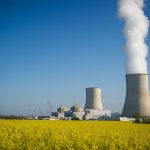Portugal mulls contracting Chinese to build two nuclear reactors
Exploratory conversations are said to have been held with the Chinese energy firm CNNC on the possibility of hiring it to build two 1.200 GW nuclear reactors in a €10Bn investment.
In 2024 construction began on nine nuclear reactor projects in the world (six in China, one in Pakistan and two others in Egypt and Russia).
In Portugal, Pedro Sampaio Nunes, former Secretary of State for Science and Innovation, argues that the country should be at the forefront of those “interested in having large, more efficient and cheaper nuclear reactors per megawatt”.
The energy specialist consultant told news source Negócios that he has been in contact with the company China National Nuclear Corporation (CNNC) about the possibility of building two 1,200 MW reactors in Portugal (within six years), which will require an investment of €10Bn (about €4,000 for each MW).
“These are just exploratory conversations to evaluate the viability of building reactors in Portugal in the future, with realistic costs and deadlines, that could offer an alternative to the current energy policy”, he said.
Pedro Sampaio Nunes said that for the time being Portugal would only require two to create a robust and firm base for Portugal’s electricity system, complemented by renewables, and without the need for huge investments in network extensions, storage, or thermal and natural gas backup systems.
In fact, he said that 2.400 GW of nuclear generated power would cover 40% of Portugal’s current consumption.
“If it were considered a strategic project of national interest, I think that in 10 to 12 years we could have a couple of reactors producing clean, competitive and abundant electricity in the country, contributing to decarbonisation and energy autonomy.
However, the President of APREN, Pedro Amaral Jorge has a radically different opinion and argues that nuclear energy would only make sense from 2045.
“The IEA says that nuclear energy is back in the agenda, but at the same time recognises all of the problems associated with nuclear energy such as technology barriers, high costs, lack of financing, and opposition from the general public.”
“People may not like solar panels but are they going to want a nuclear power station near their homes? The electricity system needs flexibility and nuclear energy couldn’t be more inflexible and would have to be subsidised by the public who aren’t prepared to do it,” he countered.








